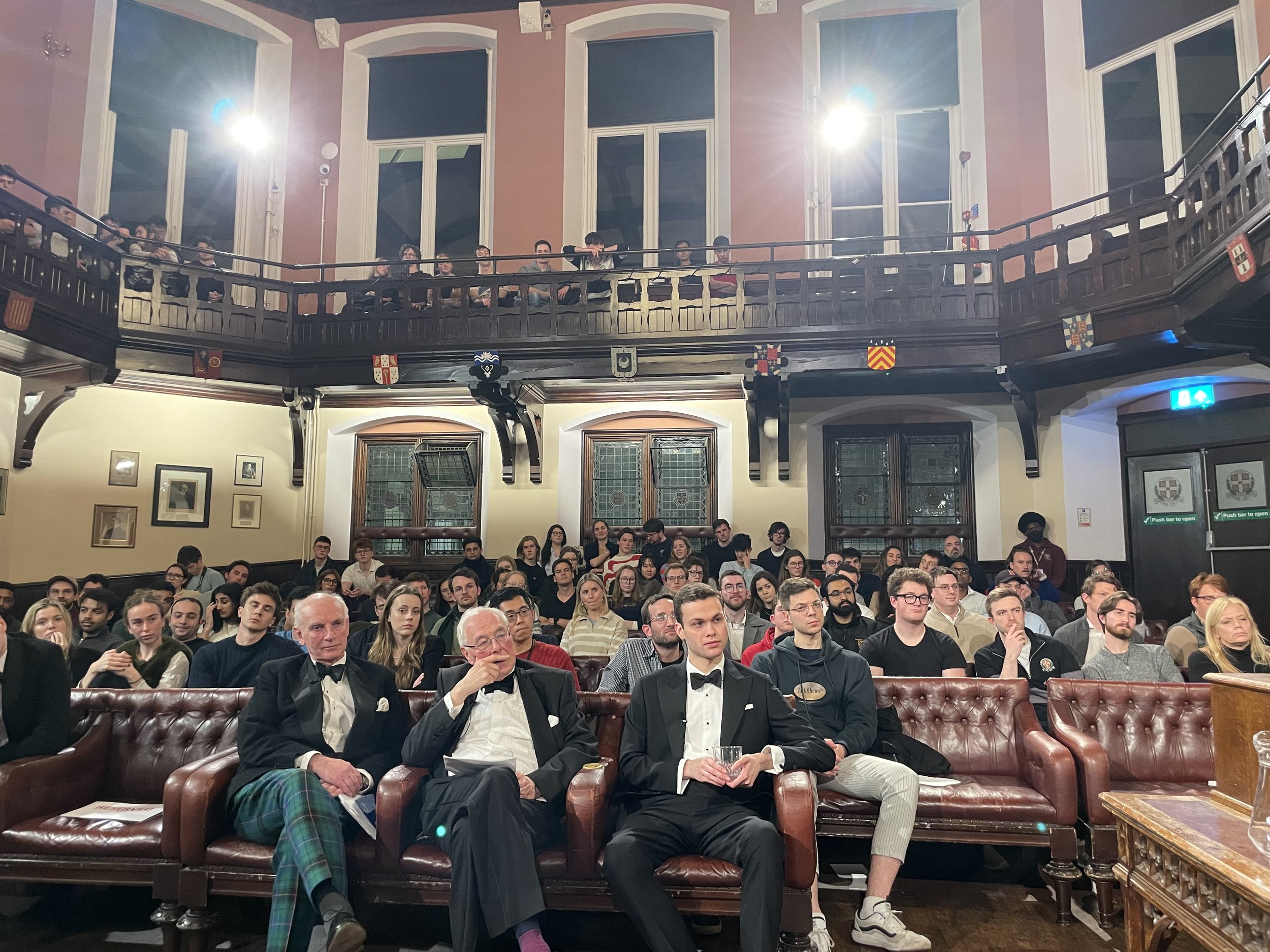Videos
Cambridge Union debate — January 25, 2024
Debating at Cambridge — the story
The email was unexpected. I was being invited to debate nuclear weapons at the Cambridge Union — the oldest continuously operating debating society in the world.
I was honored. And intimidated.
The debates mirror the structure of a debate in the British Parliament. And the hall, which can easily hold 300 people, is laid out like Parliament: with two teams of three facing off against each other on either side of an aisle that divides the room in half. Each speaker is allowed ten minutes. At the end of the hour, the assembled members vote. Our proposition was ‘This House believes nuclear weapons have made the world safer.’
I flew to the UK, stayed with a friend, and worked hard on my ten minute argument. But kept feeling that the three of us who were going to oppose the proposition had been brought in as sacrificial lambs.
The signs were not good. First, they (accidentally?) didn’t tell me it was black tie. So there I was, the quintessential ugly American, disrespecting the traditions of my hosts in a grey suit.
Second, they invited us to a dinner beforehand. The British are masters at off-handedly overawing you. Place cards, many pieces of silverware (wait: what is this spoon for?), waiters, candles, Beef Wellington, and plenty of wine. The walls were crowded with pictures of former speakers. Churchill debated there. Teddy Roosevelt, Margaret Thatcher, Ronald Reagan, James Baldwin, William F. Buckley, Jr., Jawaharlal Nehru, F. W. de Klerk, Bill Gates, Bernie Sanders, Marine Le Pen, and many, many others.
Again: intimidating.
See the pictures on the wall of famous people who’ve debated at the Cambridge Union?
Third, they told us at dinner that it was the tradition of the debate that members of the audience could call out, “Point of order!” and pose a question or challenge to the speaker. It’s considered rude not to take at least one question. Another distraction to manage.
Fourth, when we arrived in the hall, the opposing team was, unsurprisingly, imposing. Tom Pate: a Cambridge PhD student in International Relations — smart, well-spoken, well-informed. Paul Schulte: A ferociously smart nuclear weapons intellectual and long time advocate for the weapons. And Sir Hew Stachan, (CVO, DL, FRSE, FRHistS, FBA) former Oxford don, currently Professor of International Relations at the University of St. Andrews, poised, intelligent, member of the House of Lords, and so at ease with the demands of formal British life that he was perfectly comfortable wearing pants that bore the tartan design of his Scottish clan with his tuxedo. (See below.)
Sir Hew Strachan, Paul Schulte, and Tom Pate
But that wasn’t the worst part. I found out later that prior to the debate, a straw poll was taken and a clear majority of the audience (who would vote at the end to determine whether we won or lost) was in favor of the proposition. Before the debate even began, a majority believed nuclear weapons had made the world safer.
Even before the race began, our opponents had a half mile lead. And we were less impressive, less established, I was underdressed, and our opponents were smart and experienced.
And . . . we crushed them.
The final tally was 171 against, 55 in favor, and 38 abstaining. We took a majority in favor and turned it into a three to one drubbing.
I think what it shows how effective realist arguments are against nuclear weapons.


